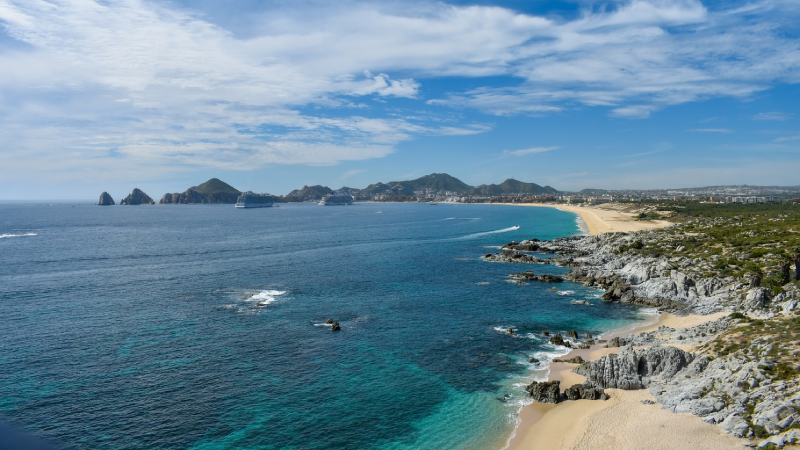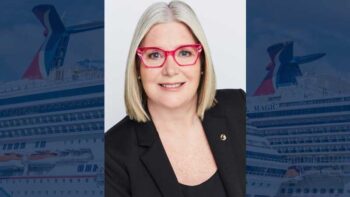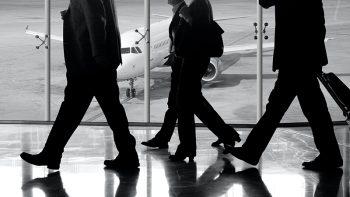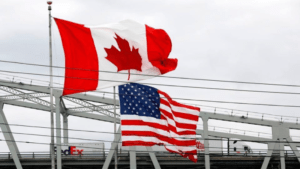
The Canadian government recently upped its travel warning for Mexico to level two, which suggests visitors exercise a high degree of caution.
The warning came after violence erupted in some areas of the country, including Mazatlan, and it sparked stories in the Canadian media. CTV News was alarmed enough by the news that it contacted yours truly for a television interview.
The warning for Mazatlan has since increased to “Avoid all non essential travel."
I don’t ever want to downplay violence in any setting, but I made the point of telling my interviewer that the most serious warnings for Mexico were in areas that Canadians don’t often go. There are warnings for Nayarit, but the government suggests avoiding areas within 20 km of the states of Sinaloa and Durango. Puerto Vallarta, the biggest draw for foreign visitors to that area of Mexico, is a good four hour drive from Sinaloa state.
Mazatlan, the biggest tourist draw in Sinaloa state, is a whopping 2,600 km’s from Cancun, which is roughly the same distance as Vancouver to Winnipeg.
The point about government travel warnings came up on 14NOV during a panel discussion called “Traveling in Changing Times” at the Society of American Travel Writers’ (SATW) convention in Istanbul, which I’m attending as a member of the board of directors.
Daniel Durazo, Director of External Communications for Allianz Partners USA, told the panel that some U.S. government travel warnings are often left up for extended periods of time, “regardless of what’s actually happening on the ground.”
Some warnings may not always be a good indicator of the situation at a destination, he said.
“What they may be is an indicator that you need to look into it and be aware of what the situation is.”
Durazo later told Open Jaw he was talking mostly about low-level warnings, not the general "do not travel" alerts that governments sometimes issue.
Durazo said at one point “just about every place had some kind of low-level State Department warning about something, and a lot of those places are no more dangerous than New York or any major city in the U.S.”
Higher-level warnings are another thing entirely, he explained.
"Overall, I think it’s necessary to draw a distinction between low level warnings for places like Mexico and high level warnings for places like Russia, North Korea, Gaza, etc."
Open Jaw took a look at the Canadian government’s travel advisory site for 14NOV, 2024 and found 230 destinations listed. Of those, only 104 carried the lowest level of security warning, which is to “take normal security precautions.” The site lists 94 destinations as having level two status, which carries a warning to use “a high degree of caution” when visiting. Another 10 destinations were at level three, which suggests all non-essential travel be avoided, while 22 destinations had level four status, which says Canadians should avoid all travel.
If you look at the 94 destinations with level two “high caution” status, you’ll find almost every major country in Europe, as well as Mexico, China, Jamaica, Jordan and Thailand.
“We really take these with a grain of salt and advise other people to do their research and not rely on those alone when making their decisions.”
Durazo also said he thinks Mexico gets a bad rap in general.
“As tourist destinations go it’s incredibly safe, and the people are wonderful. I don’t think people realize just how large it is.”
U.S.-based public relations specialist Geoffrey Weill told the panel that people were worried last year when a strong earthquake hit south-central Turkey, near the Syrian border. But that ‘s 1,100 km’s from Istanbul, which is roughly the same as the distance between New York and Chicago or Toronto and the Virginia-North Carolina border.
Durazo said problems do, of course, occur when people travel.
“Having a travel advisor is a great way to get someone in your corner,” he said, as is buying travel insurance.
Another tremendous panel discussion at this year’s SATW convention was called “Travel as a Force For Good,” and featured, Aziz Abu Sarah, a Palestinian whose brother was killed by the Israeli army, and Maoz Inon, an Israeli Jew whose parents were killed in the 2023 Hamas attack on Israel.
The two have become good friends and talk frequently about the power of tourism to break down barriers between people and cultures.
One subject that arose in an often emotional discussion was whether tourists should boycott certain countries because of their political positions or policies.
Inon said 180 world countries would have to be boycotted if people took that to an extreme.
Instead of boycotting a place they don’t like, Inon said it would be much better to visit and engage with people in a responsible way.
“That’s hard sometimes, but it’s what we need.”






